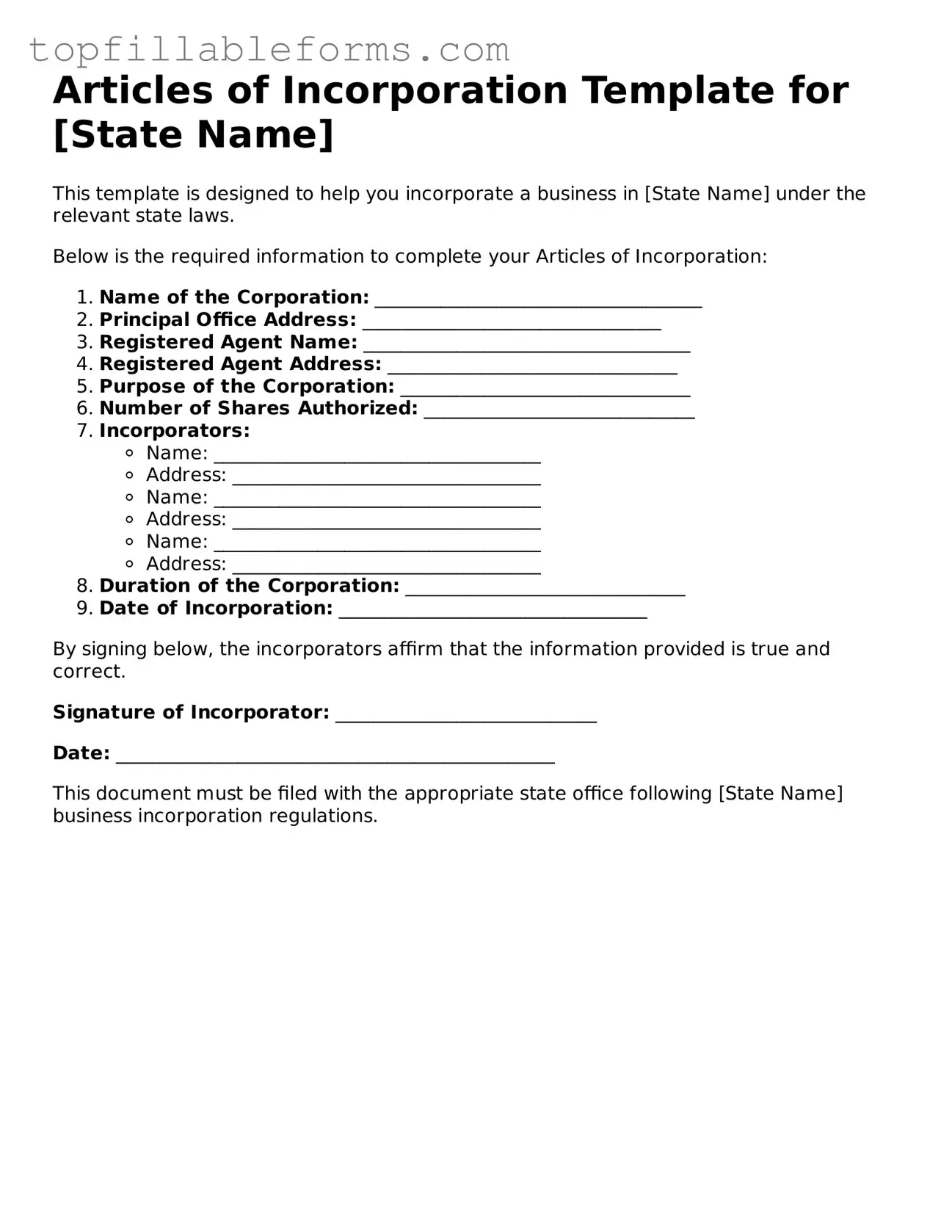Free Articles of Incorporation Form
The Articles of Incorporation form is a crucial document used to establish a corporation in the United States. It outlines essential details about the company, including its name, purpose, and structure. Completing this form is the first step in creating a legal entity that can operate independently of its owners.
Open Articles of Incorporation Editor Here

Free Articles of Incorporation Form
Open Articles of Incorporation Editor Here
Finish the form now and be done
Finish your Articles of Incorporation online by editing, saving, and downloading fast.
Open Articles of Incorporation Editor Here
or
▼ PDF File
